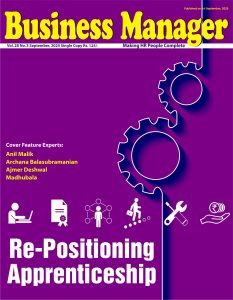Today’s employees are inspired by more than just a paycheck—they are looking for meaningful support that empowers their growth, nurtures their well-being, and promotes a healthy work-life balance.
Forward-thinking companies view strong employee benefits as a strategic advantage, driving retention, productivity, and employer brand. While businesses understand the value of robust benefits programmes, many are refining their approach to better align with employee expectations.
Balancing short-term financial considerations with long-term investment in people is essential.
Smart benefits programmes fuel long-term growth by boosting engagement, reducing attrition, and strengthening the employer brand. Companies that invest in their people lead the way in attracting and retaining top talent.
Changing workforce priorities
The idea of a great workplace has evolved—flexibility, career growth, and paid leave are now essentials. Today, 70% of small firms—with fewer than 500 employees—offer flexible work arrangements to attract and retain talent. Career development directly impacts employee loyalty, with professionals stating it influences their decision to stay with an employer.
Furthermore, the fact that 69% of Gen Z workers regard paid leave as non-negotiable emphasizes a clear generational shift in workplace expectations.
Also read – Parag Bhatnagar joins Biodeal Pharma as Corp. Head-HR
As focus on employee well-being grows, there’s a powerful opportunity for companies to enhance their benefits programmes. By evolving offerings to be more flexible and aligned with employees’ real needs, businesses can boost satisfaction, engagement, and retention—staying ahead in a competitive talent market.
Employee benefits as a business advantage
Companies that offer meaningful, well-structured benefits experience higher retention, engagement, and performance. When employees feel supported, they stay. Organisations investing in a comprehensive benefits report 23% higher engagement levels, reinforcing the direct link between well-being and productivity. A survey by NTT found that 94% of CEOs believe that improving employee experience positively impacts net profits. Aligning technology with employee experience initiatives can boost satisfaction, productivity, and retention—key drivers of long-term success. Enhanced employee well-being has also been linked to higher company valuations, improved return on assets, and sustained profitability.
Few of the leading businesses have redefined employee benefits. Google empowers employees with personalised compensation options, allowing them to allocate their earnings between cash, equity, and retirement savings. The company’s comprehensive family benefits, including paid parental leave and eldercare assistance, demonstrate a commitment to employee well-being at every life stage. These initiatives have reduced turnover by 20% and significantly boosted productivity. They also helped employers lower absenteeism by as much as 50% while seeing a return on investment (ROI) of up to 72% compared to firms with standard benefits.
Deloitte, a leader in well-being-centric benefits, prioritises mental health by offering access to therapists and resilience coaching. Its unique paid time off (PTO) policies, such as “Collective Disconnects,”encourage employees to take time off, ensuring they fully recharge. These forward-thinking initiatives showcase how investing in employee wellness translates into long-term business success.
Designing benefits that inspire loyalty
The future of employee benefits is hyper-personalised. AI-powered solutions tailor benefits to individual preferences, life stages, and evolving professional needs. Seamless digital access through mobile-first technology ensures employees can easily navigate and utilise their benefits. To stay relevant, organisations must integrate real-time employee feedback loops, enabling continuous improvement. Transparent communication about entitlements and policies builds trust and helps employees maximise their benefits.
People-powered Profitability
The workplace is evolving—and so are employee expectations. Flexibility, purpose, and personalised support are now essential. When businesses deliver on these, they unlock more than engagement—they unlock performance.
Well-designed benefits are a smart strategy. They build loyalty, boost productivity, and strengthen culture.
The most successful companies know, when you invest in people, profits follow.
Stay connected with us on social media platforms for instant updates click here to join our LinkedIn, Twitter & Facebook








